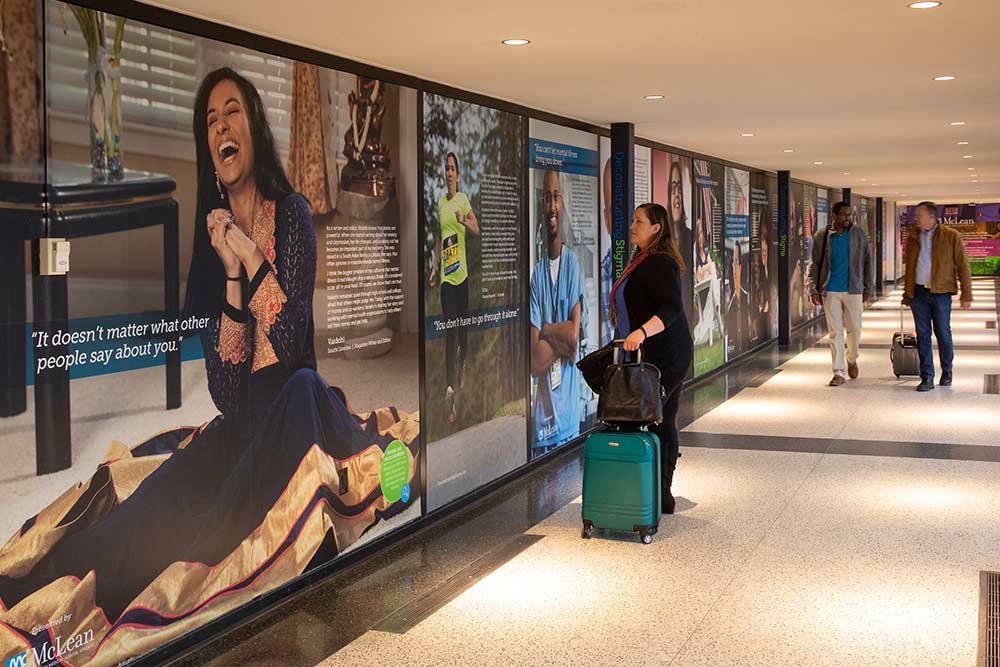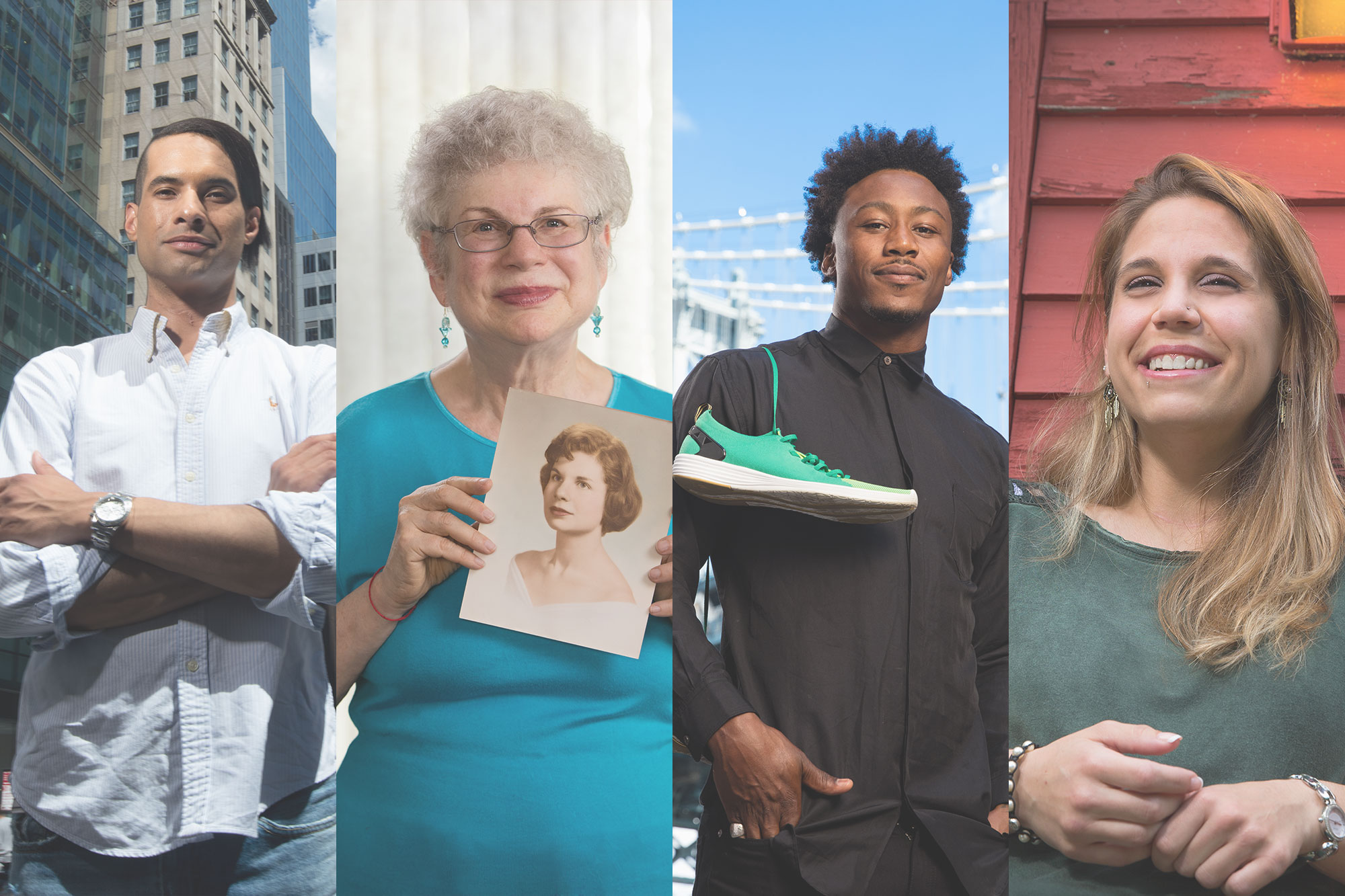I was not living: I was surviving
Vermont holds memories so painful that Julia plans to leave the state as soon as she earns her bachelor of science in nursing.
I love Vermont, it’s home … and I have a complex trauma history with it. I’m radically accepting my need to stay another year to finish nursing school while also remaining cautious and proactive regarding my emotional well-being.
In April 2015, during her freshman year at the University of Vermont (UVM), Julia was involved in a car accident that claimed the life of her best friend, Christina—and left Julia and the driver, Jake, severely injured. Christina died at the scene. Emergency personnel rescued Julia and Jake using the Jaws of Life.
Julia met Christina, another freshman nursing student, the previous fall. When Julia confided to Christina that she was experiencing depression, Christina supported and related to her. Christina encouraged Julia to socialize, eat, and access the student mental health clinic, where Julia received counseling and was diagnosed with major depressive disorder.
To suddenly lose her best friend was highly traumatizing for Julia.
My best friend and support, in a matter of moments, was gone.
Then, there was the physical trauma.
I was broken from scapula to ankle.
After the accident, Julia was treated at the same hospital where she and Christina were completing clinical training as nursing students. While Julia received exceptional care for her physical injuries, she believes her emotional wounds were neglected.
Twenty-eight days after my trauma, I was sent home with a hospital bed, wheelchair, and parents who did the best they could with their daughter who was just in a traumatic car accident.
In order to cope, Julia focused on her physical pain. The former gymnast’s ankle was shattered, and she endured bone-on-bone arthritis for three and a half years.
My physical injury could be my sole focus because the mind-body connection is vital. My pain levels were consistently 7+ out of 10. Every other step I took, I was walking on my traumas. There was no improving my mental health without first dealing with that. I was not living. I was surviving.
She adds it wasn’t until after she received a total ankle replacement “that all of the emotional complexities of the trauma bubbling under the surface manifested.”
With the daily pain aside, Julia experienced a surge of survivor’s guilt. She frequently dissociated and drowned in hopelessness, helplessness, and suicidal ideation.
In October 2018, Julia was desperate for an answer. She told her parents she would need more support to make it through 2019. She admitted herself to residential programs, including the Hill Center for Women at McLean, which offers psychiatric and psychological services for women with traumatic histories.
Being 18 in Vermont with this trauma was beyond isolating. The support in knowing that these women are fighting, too, was inspiring.
During Julia’s treatment, she was diagnosed with complex post-traumatic stress disorder (CPTSD).
My trauma becomes complex because I’m not just mourning the loss of a friend. I have had to grieve the loss of my own abilities and the loss of what I thought I’d be able to do with my body and with myself in the future, including my career. I had little emotional regulation, hypervigilance, a loss of faith in the medical system, and I harbored a great deal of resentment.
During her ongoing recovery, Julia recognizes and appreciates the lessons she will take from her experience.
I have real-life experience, to know how it feels to be a patient—the pain, the IVs, bed baths, confusion, teams of doctors, and the overall overwhelming nature of hospitals. This experience makes the whole professional aspect of my life incredibly rewarding. My experience drives me and my future career.
After taking a one-year medical leave, Julia has returned to UVM to complete her senior clinical rotations.
It has been challenging to watch my original nursing class complete the program and begin their nursing careers while I continue towards this goal, and Christina has lost the opportunity.
As she returns to school, Julia faces the challenge of completing rotations in the hospital where her best friend was pronounced dead and where she spent the hardest days of her life.
This whole campus is a reminder. Every memory associated with Christina, positive and negative, was formed here.
Julia worked tirelessly to find a therapist, psychiatrist, and dialectical behavioral clinician to work with her to manage her CPTSD as she completes her degree. Since joining the DBT group, Julia has been so inspired by its effectiveness that she plans to pursue a certification to practice this therapy.
She receives support from her parents, friends, extended family, and especially from her emotional support cat, Coraline, who accompanies her to work, yoga, and cafes.
Cora follows me wherever I go. When I begin to get dysregulated, she will lay herself over my heart, knead, suckle, and nuzzle my chest and face.
Julia has a job she loves, where she cares for patients who have dementia. Her management team is supportive, and she has a “fabulous roommate” who is equally open and passionate about mental health. All these blessings, she says, are “Christina-sent.”
She’s been looking out for me; I couldn’t have fought this fight without her.
With the good coming her way, Julia concedes it may be difficult to leave Vermont after all.
My mindset continues to shift as I continue to recover. For the last three and a half years, I did not see a future for myself. I had the core belief that I was not supposed to survive my trauma. I don’t believe that anymore, and that’s resilience. Treatment taught me to understand that in my trauma I dissociated, and my mind made up some of these distorted decisions. The dialectic is I am here, my body did pull through, and it is my own. I am physically here in my body, and I deserve to be.

